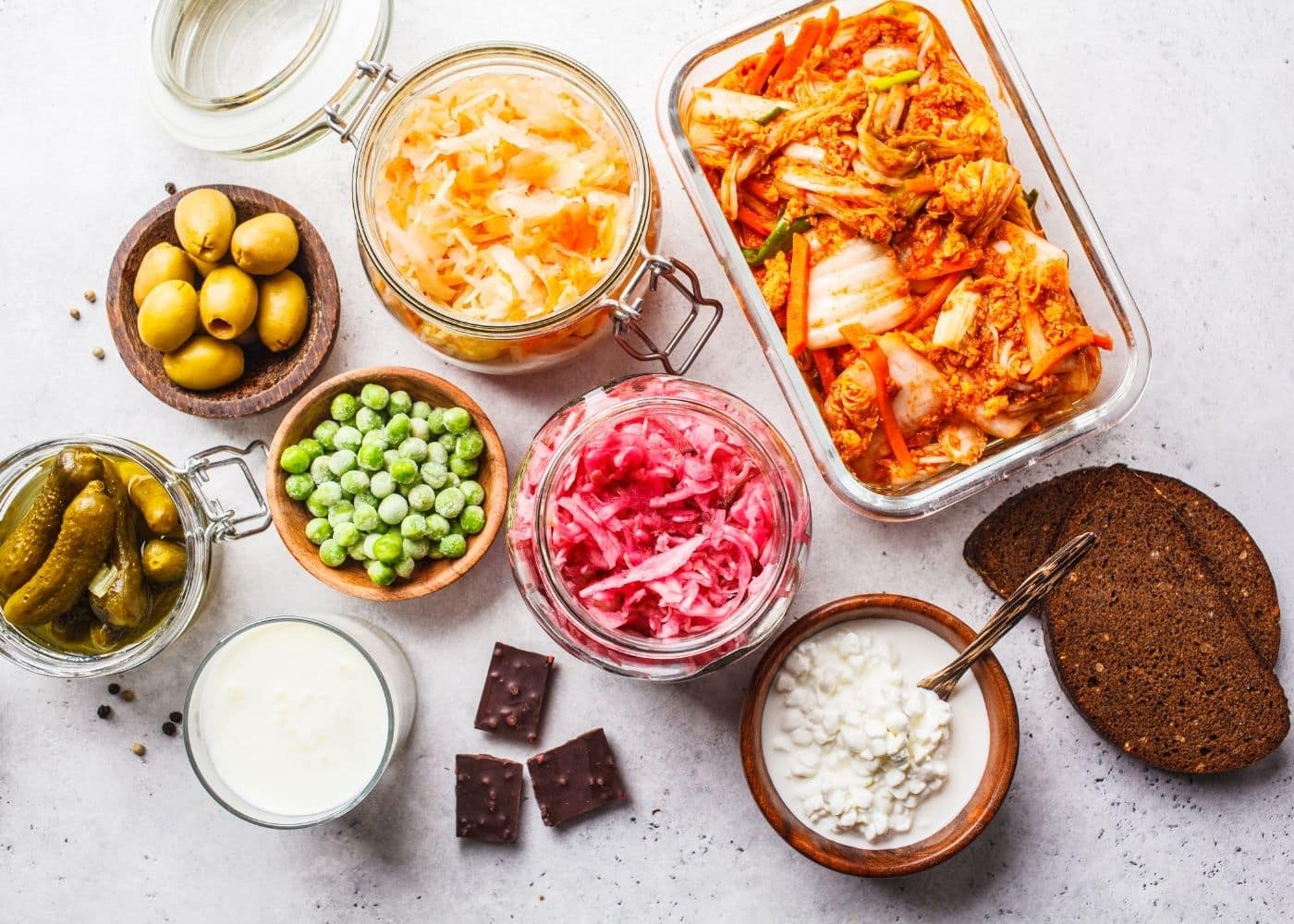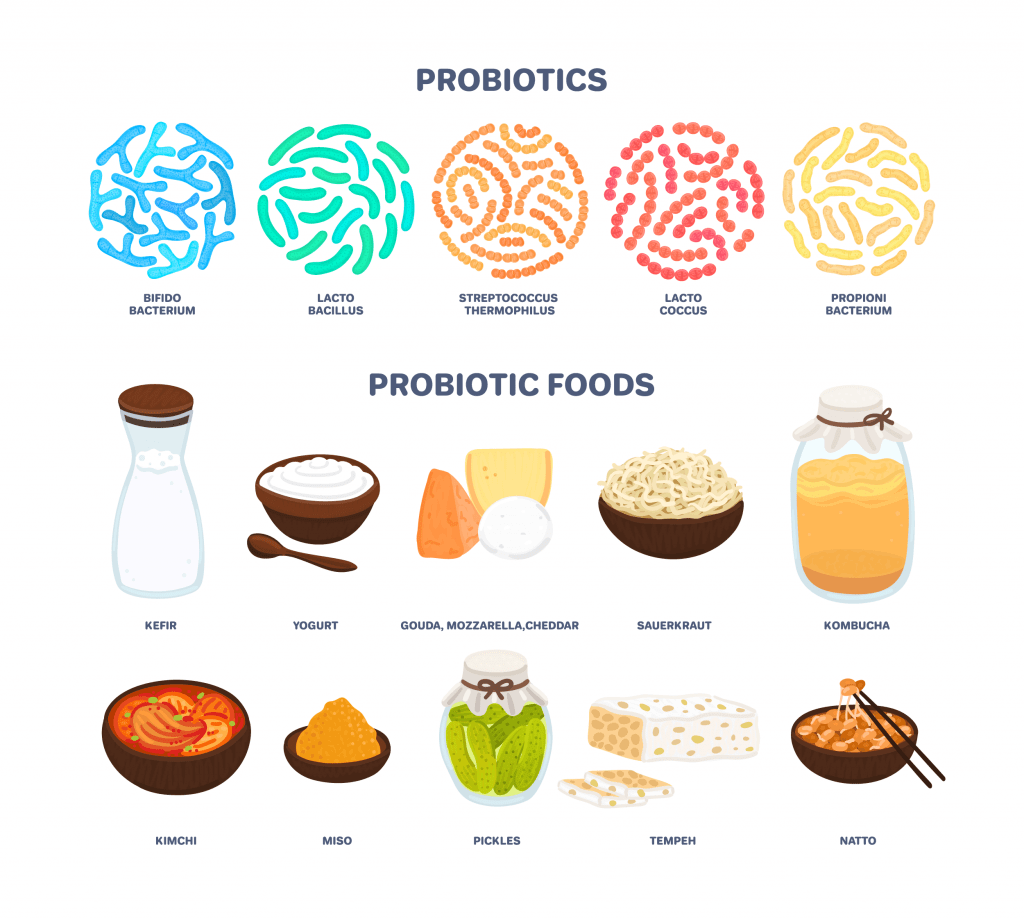Best time of day to take probiotics?

Probiotics - A Quick Overview
Probiotics are live bacteria and yeasts - the “good” kinds of microorganisms that help maintain a balance in your gut health. While the concept of ingesting live bacteria might seem a little daunting, these helpful little microbes support a myriad of physiological roles, most prominently, digestion and immunity.
The term 'Probiotic' literally translates to 'for life' - an homage to their myriad health benefits. They are generally found in fermented foods like yogurt, sauerkraut, pickles, and certain types of cheese like gouda, mozzarella, and cheddar. Alternatively, they are also available as dietary supplements in capsule, tablet, or powder forms.
Health Benefits of Probiotics
Probiotics are often hailed as a one-stop solution for gut health, and legitimately so. The foundation of probiotics lies in their ability to maintain the balance of your “gut flora”, the community of natural microorganisms living in your digestive tract. These bacterial colonies assist in the digestion of food, stimulate the immune system, and ward off potential pathogens.
Among their well-documented benefits, probiotics aid in the management of irritable bowel syndrome (IBS), inflammatory bowel disease (IBD), infectious diarrhea, and diarrhea associated with antibiotics. Some strains of probiotics can promote heart health by lowering "bad" LDL cholesterol levels and modestly lowering blood pressure. They can also give your immune system a boost, reduce the severity of allergies and eczema, and enhance weight loss benefits.
Best Time of Day to Take Probiotics?
Now that we have a basic understanding of what probiotics are and the wealth of benefits they provide let's get down to the critical question - when is the best time to take them?
Science suggests that the best time to ingest probiotics is just before, during, or shortly after meals. This is when the stomach's acid levels are comparatively low, thus ensuring that the bacteria's survival chances (as they transit from your mouth to your gut) are significantly high.
Another practical tactic would be to take probiotics in the morning before breakfast or at night before going to bed, when our stomach's pH levels are relatively less acidic. However, it's crucial to note that the efficacy can greatly vary depending on the specific strain of probiotics as some are designed to withstand harsher stomach conditions.
Why Timing Matters?
Probiotics, at their core, are live bacteria. Their wellness benefits hinge largely on their ability to reach your gut alive, thrive, and multiply in numbers. However, the transit from your mouth to gut is an arduous journey for these little cells. They must successfully navigate through the hostile, acid-laden environment of the stomach before they reach the comparatively less stringent conditions of the colon where they can then multiply and exert their key benefits.
The timing of probiotic supplementation can, therefore, determine their survival rate. For instance, studies show that probiotics given 30 minutes before a meal or with a meal survive in significantly higher numbers than those given 30 minutes after a meal.
What to look for in a probiotic supplement?
Choosing a probiotic supplement can be a daunting prospect given the sheer number of options available. However, there are a few things to keep in mind that could help make the process easier. Look for a probiotic supplement that guarantees live cultures up until the expiration date, not just at the time of manufacture.

Finally, finding the “right” probiotic often comes down to trial and error. Be patient with the process, and ideally consult with a healthcare provider before beginning a probiotic regime.
At the end of the day, priming your gut with a healthy dose of probiotics are about more than quick benefits - it's a lifestyle choice revolving around an investment in long-term health and a proactive approach to wellness.
Regardless of when you choose to supplement probiotics, it's important to remember that consistency is key. Establishing a routine will not only ensure that you remember to take them, but it will also help to habituate your body to their presence, maximizing absorption and physiological benefits.
Natural Sources of Probiotics
Probiotic-rich foods are a delicious, nutrient-packed way to populate your gut bacteria. They're also an excellent option for individuals who prefer to get their nutritional profile from whole foods as opposed to supplements. Here are a few potent sources of dietary probiotics:
Yogurt Perhaps the most well-known probiotic food is yogurt, made from fermented milk by bacteria, predominantly Lactobacillus and Bifidobacteria strains. Regular consumption of yogurt has been associated with improved bone health and blood pressure.
Kefir: This probiotic-rich drink is made by adding kefir grains to cow's or goat's milk. This fermented beverage has been linked with an array of health benefits, including improved bone health, digestion, and potential cancer-fighting properties.
Sauerkraut: A staple in Central Europe, this fermented cabbage dish is not only a rich source of probiotics but also comes packed with vitamins C, B, and K.
Kimchi: This iconic Korean dish consists of fermented cabbage and radish. Rich in lactic acid bacteria, Kimchi is great for gut health and comes with added benefits of vitamins and minerals.
Other fermented foods: Other than these, various other fermented foods like pickles (non-pasteurized), traditional buttermilk, some types of cheese and Miso, a Japanese seasoning made by fermenting soybeans, can serve as excellent sources of probiotics.
Sourdough bread: A type of bread made from fermented dough, sourdough bread, is also a popular natural source of healthy probiotics.
Remember, not all products labeled as ‘probiotic’ are created equal. Every type of probiotic food contains different strains and quantities of probiotics - the health effects can vary between each. And with certain products like cheese and yogurts, it's essential to ensure they are labeled as ‘live and active cultures’, meaning they contain live probiotics.
Integrating these probiotic-rich foods into your diet can offer a range of other health benefits, complementing the gains from your probiotic supplementation routine. As always, remember that diet is just one piece of the puzzle – consistency, varied nutrient sources, and a balanced approach to health and wellness are also of paramount importance.
Stay tuned with SnapCalorie for more insights on your nutrition and health!